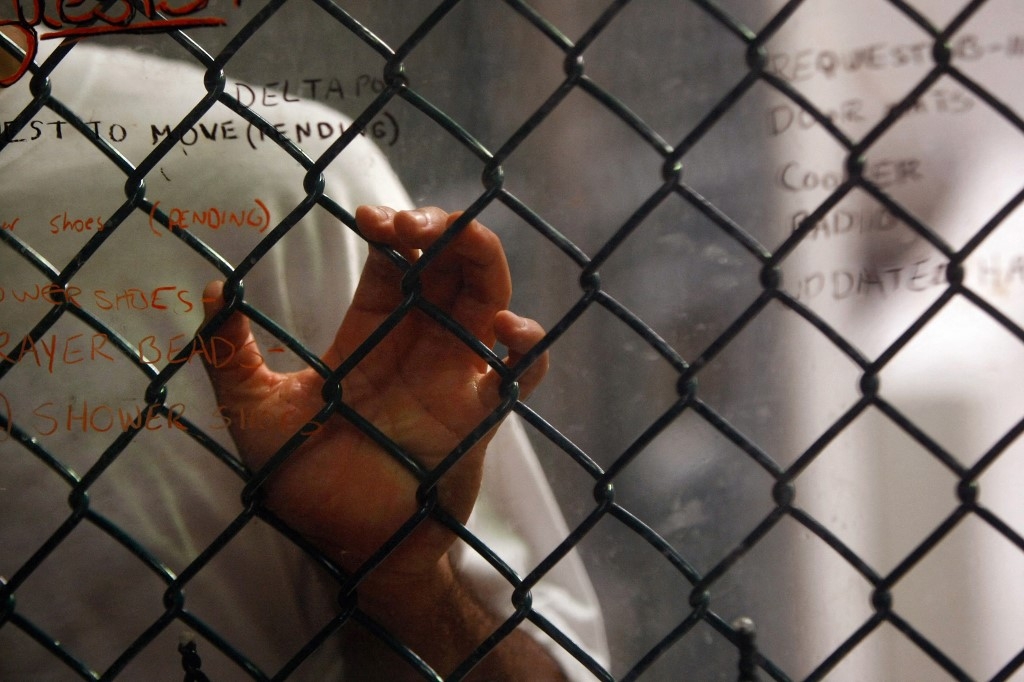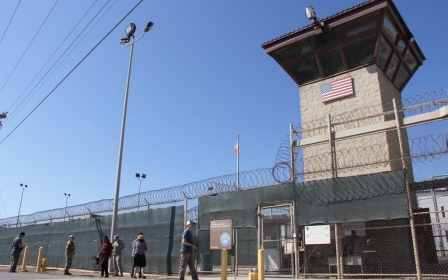Guantanamo Bay: US approves transfer of two more detainees

The United States has approved the release of two more of the 39 detainees that have been held for years at the military prison in Guantanamo Bay, according to rulings posted by the Pentagon.
Yemeni national Sanad Yislam al-Kazimi and Afghan national Asadullah Haroon Gul both won approval for their release on 7 October, according to documents posted by the Guantanamo Periodic Review Board on Thursday.
Kazimi, 51, is being sent to Oman with security arrangements, but it is not clear where Gul, 40, will end up.
The Afghan national has been detained in Guantanamo since 2007, accused of being a member of Hezb-e-Islami (HIA), a militia that fought against the allied invasion of Afghanistan. HIA entered into a peace agreement with the then-US backed Afghan government five years ago.
The board said in its release order that it had concluded he could be safely transferred with security arrangements, due to his "lack of a leadership role in extremist organizations and his lack of a clear ideological basis for his prior conduct". But it did not provide a country that he could be released to.
"The board's recommendation is welcome, but we should remember Asadullah has spent over 14 years of his life in prison without charge or trial. He should have been home long ago, so while his clearance is a relief, it is not justice," Mark Maher, his lawyer at Reprieve, said in a statement.
"Asadullah missed his daughter's entire childhood. He should be reunited with his family as soon as possible, but there is no way to restore what has been taken from them."
Kazimi was captured in Dubai in January 2003, and accused by the US of being a bodyguard of Osama bin Laden.
After years of him being held at Guantanamo without trial, the release order cited his "lack of a leadership role in an extremist organization and the limited timeframe of his associations with (al-Qaeda) members."
Given the unstable situation in Yemen, the review board, which involves high level US security officials, recommended Kazimi be sent to neighbouring Oman, which has a rehabilitation programme for Guantanamo detainees.
Closing Guantanamo
The new rulings took the number of Guantanamo detainees judged fit for release to 12, out of the 39 who remain in the prison.
The administration of President Joe Biden has said its goal is to empty the detention centre, reviving a promise made by former President Barack Obama, whom Biden served under as vice president.
However, it faces an obstacle from Congress, which has forbidden the transfer of any detainee from the prison to the US.
Of the inmates that have been approved for transfer, the State Department has to negotiate arrangements with potential recipient countries to accept and monitor them. Only one detainee, Abdul Latif Nasser, has been released by the Biden administration so far.
Middle East Eye reported earlier this week that another detainee, Ahmed Rabbani, has been scheduled for release from the prison.
Of the 27 others at Guantanamo not approved for release, 10, including the alleged "mastermind" of the 9/11 attacks, Khalid Sheikh Mohammed, are currently facing trial.
Two others have been convicted, and the status of the others remains in limbo.
Middle East Eye delivers independent and unrivalled coverage and analysis of the Middle East, North Africa and beyond. To learn more about republishing this content and the associated fees, please fill out this form. More about MEE can be found here.





